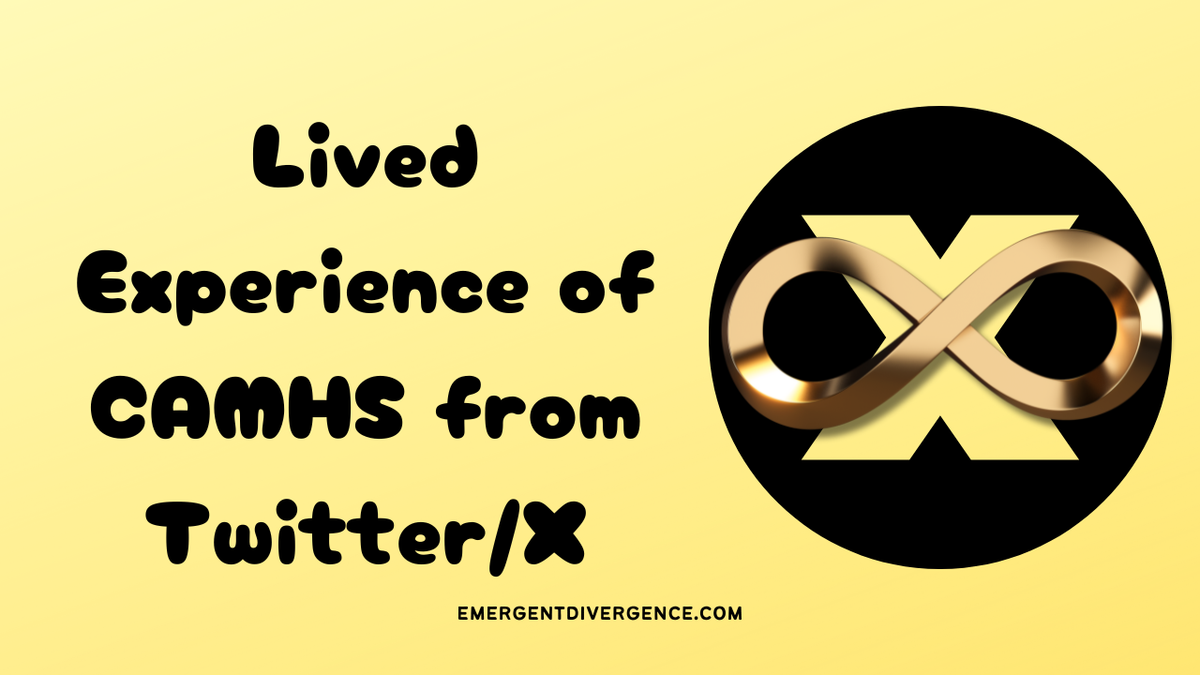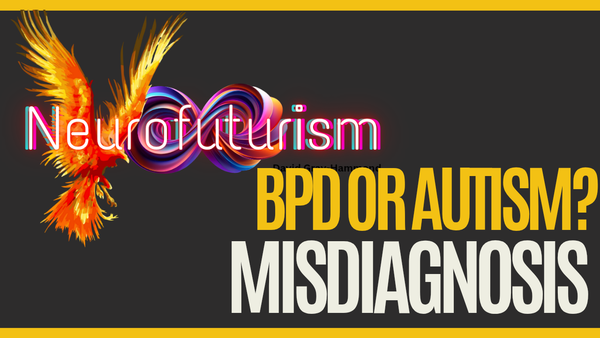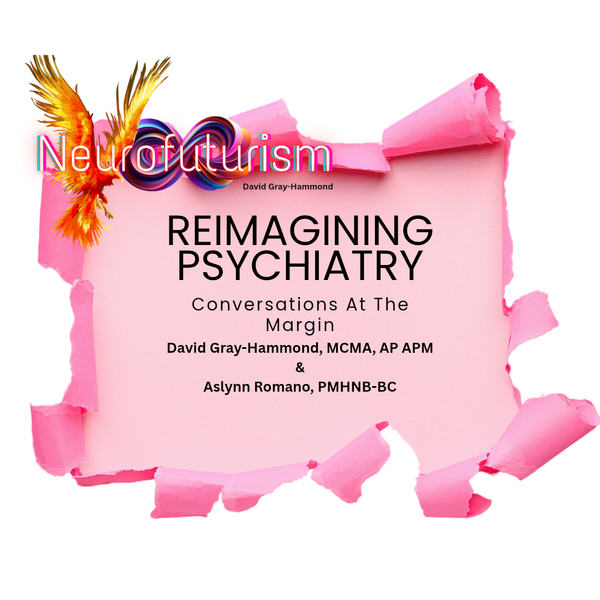CAMHS: Burnout, School Avoidance, and gaslighting
Child and Adolescent Mental Health Services (CAMHS) have been a focus of mine for quite some time now. I have talked about how they failed me, and how they are still failing Autistic children and young people over 15 years later. I have highlighted the fact that our government are aware of their fai

Child and Adolescent Mental Health Services (CAMHS) have been a focus of mine for quite some time now. I have talked about how they failed me, and how they are still failing Autistic children and young people over 15 years later. I have highlighted the fact that our government are aware of their failings (in my book CAMHS in Crisis) and done nothing. What I would like to do now is pass the proverbial microphone and focus on the lived experience of others. The following posts from Twitter/X, and a report were all gathered from the following outreach.
For further definitions of what Autistic burnout is, please click the buttons below.
"Arrogant, Selfish, Stubborn" and CAMHS threats & gaslighting around Autistic burnout
It is an open secret that CAMHS can be actively hostile towards not just parents and carers, but also the young people that come through their doors. This hostility is particular harmful for Autistic people and their families, most of whom are living in a world that actively discriminates against them.
Calling a young person "arrogant, selfish, stubborn" for expressing a common and debilitating feature of the Autistic experience is deeply troubling. Cage et al (2018) found that higher levels of perceived acceptance of autism correlated with decreased likelihood of depression scores. It is therefore deeply troubling that Autistic people are being met with hostility and denial of their experience at a time when they are likely to be in crisis. Further research has also shown that increased suicidality in Autistic people is correlated with feeling like a burden, and depression (Moseley et al, 2022).
I also can not ignore the threats of fines and prison. This is particularly relevant to parents and carers of Autistic children and young people. Institutionalised Parent Carer Blame is a real and problematic thing. In particular, it is of relevance to disabled families who are more likely to fall foul of these practices (Clement & Aiello, 2021).
The second part of this tweet highlights the use of Cognitive Behavioural Therapy (CBT) to "gaslight" the individual about their burnout. Tanya Adkin and I have written before about issues with neuronormativity in mental health care. Anecdotally, many Autistic people report issues with the "one-size-fits-all" approach of CBT. Weston et al (2016) found in its meta-analysis that CBT only has a small to medium effect size for various outcomes measured. This was found in both reports by therapy clients as well as clinicians. When will we move on from these so called "gold-standard" approaches that only work for certain demographics?
"It ruined him": Over-reliance on resilience building techniques
What really stands out to me here is the concept of "resilience building" that is pervasive in so many professions. Forcing an Autistic child or young person into the school environment when they are so distressed they are melting down is traumatic. CAMHS, however, will convince parents to do so from their position of power. What stings more is that they will then blame the parents when it all goes wrong; despite it being their advice that was being followed.
Something else that I find particularly upsetting is the inherent parent blame in suggesting attachment issues. Research suggests that autism and attachment disorders can be difficult to differentiate save for one feature; attachment disorder is thought to be caused by abuse or neglect (Davidson et al, 2022). The implication of "attachment issues" is that parents are to be held responsible rather than the systems of society that make it so easy for Autistic children and young people to burn out.
Another story highlights the lack of understanding and contempt for Autistic burnout
The person involved noted that the CAMHS clinician acknowledged 'residual trauma' in a young person's 'avoidance' of school, but instead of offering further understanding, compassion & empathy recommended 'graded exposure', citing that avoiding going to school would only increase their anxiety. Even more horrifying was the open acknowledgement that the young person needs to suffer to see improvement, with a suggestion that the avoidance behaviours are not seen at home as avoiding school is 'understandably making them feel safe' with nothing to 'trigger' them
Professionally, I have worked with many children and young people who have been exposed to these attitudes. There is more focus on "back to school" tactics than on acknowledging the progress that a child or young person makes away from school. For many Autistic children, being away from the mainstream school environment can be lifesaving.
Totsika et al (2020) highlights attendance of mainstream school as a persistent factor in Autistic non-attendance of school. Perhaps the professional in question should have considered the impact of the school environment, and how that can be adjusted, rather than valuing attendance in the face of immense suffering. Graded exposure is also a CBT technique, and as previously mentioned, is likely to only have a small impact. It is likely that it would involve putting a child through distress for little benefit.
Implications for CAMHS professional practice
CAMHS professionals need to completely rethink their approach to Autistic children and young people. Not only is their experience being invalidated, they are being gaslit. They are also being forced into situations that cause further distress, with young people and their parents taking the blame for the fall out. CAMHS professionals should be working from a position of compassion and empathy. While I acknowledge that the double empathy problem presents a challenge for professionals, they should be acknowledging the boundaries of the children and young people they are working with.
It is not effective to force Autistic children to "push through" their burnout. Burnout is a complicated and debilitating life experience that has become endemic to the Autistic community; likely because of professional attitudes when we approach professionals for support.
How can you support the CAMHS campaign?
Share this article and the resources below!
Sign the petition, it currently has over 200,000 signatures.
Join my mailing list for updates on CAMHS and more.
Purchase the CAMHS in Crisis book, available in Kindle and Paperback versions
Did you know you can view this article on the new android app? Click the button below to download the app.
References
Cage, E., Di Monaco, J., & Newell, V. (2018). Experiences of autism acceptance and mental health in autistic adults. Journal of autism and developmental disorders, 48, 473-484.
Clements, L., & Aiello, A. L. (2021). Institutionalising parent carer blame. The Experiences of Families with Disabled Children in Their Interactions with English Local Authority Children’s Services Departments. Cerebra. University of Leeds.
Davidson, C., Moran, H., & Minnis, H. (2022). Autism and attachment disorders–how do we tell the difference?. BJPsych Advances, 28(6), 371-380.
Moseley, R. L., Gregory, N. J., Smith, P., Allison, C., Cassidy, S., & Baron-Cohen, S. (2022). The relevance of the interpersonal theory of suicide for predicting past-year and lifetime suicidality in autistic adults. Molecular autism, 13(1), 14.
Raymaker, D. M., Teo, A. R., Steckler, N. A., Lentz, B., Scharer, M., Delos Santos, A., ... & Nicolaidis, C. (2020). “Having all of your internal resources exhausted beyond measure and being left with no clean-up crew”: Defining autistic burnout. Autism in adulthood, 2(2), 132-143.
Totsika, V., Hastings, R. P., Dutton, Y., Worsley, A., Melvin, G., Gray, K., ... & Heyne, D. (2020). Types and correlates of school non-attendance in students with autism spectrum disorders. Autism, 24(7), 1639-1649.
Weston, L., Hodgekins, J., & Langdon, P. E. (2016). Effectiveness of cognitive behavioural therapy with people who have autistic spectrum disorders: A systematic review and meta-analysis. Clinical psychology review, 49, 41-54.


